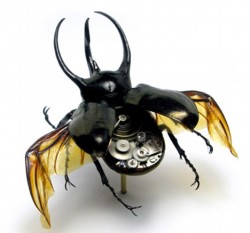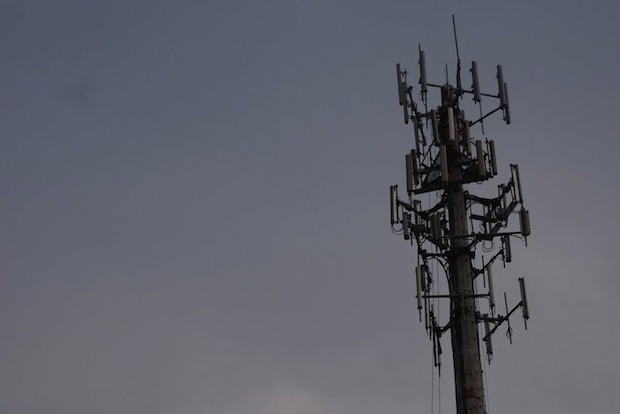“Steve, what did we decide to codename her?”
Steve clicked through his notes. “Turnkey, sir.”
“Turnkey? Who the hell came up with that?” Raymond knew The Agency was running out of codenames, but this was ridiculous. As a top official, he had enough on his mind; how was he supposed to keep track of this shit?
“Well, I think it’s because—”
“So does that mean we’re moving ahead?” Isobel interjected.
“The data is there,” said Michael. “We’re positive she has one of the stronger connections to Wedge that we’ve been able to identify. The frequency of their SMS communication alone—plus the fact that they so often text late at night—indicates that this is clearly more than a working relationship.”
“Not to mention,” Patricia added, “that Occupy essay they wrote came out almost a year ago. If it was purely a working relationship, they’d have no reason to still be in contact.”
“So you think they’re lovers?”
“Well, we’re not certain yet,” Michael replied. “I’ve got Steve filing for a warrant to go through the SMS content, and her email content as well. We’re hoping she’ll turn out to be less opaque than Wedge—”
“That bastard lives to spend words but say nothing at all.” Patricia still hadn’t forgiven Wedge for the two days she’d wasted pouring over the dense, obtuse, & poorly punctuated prose that populated his outbox. The man was a journalist by trade; that his private communications were so terribly written seemed nothing short of a deliberate (and successful) effort to antagonize The Agency. Patricia was certain Wedge must have at least one other account somewhere—probably several of them—in which he communicated more clearly, and through which he conducted most of his conversations. But so far, despite a week of effort, no one at The Agency had been able to find it. Though her specialty was code in text, and not text as code, Patricia blamed Tor. Anonymity was the scourge of The Agency.
“What about the cameras?” Raymond asked.
 “We’re working to get more of them placed near her condo, and Steve’s going through our drone footage from New York last spring. But we’re pretty sure they haven’t been in the same city at the same time for a month or two, which is well before we considered Wedge a priority target, so it’s hard to tell.” Michael forced himself to bite his tongue about the drones; a year later, he was still angry that The Agency hadn’t funded his project fully. If he’d had his way, each of them would have had a small swarm of micro-drones shadowing their every move—not just Turnkey and Wedge, and not just this new Gang of Eight, but everyone in their whole Twitter cabal, all 50 or 60 of them. As it happened, Michael only got 20 drones, and neither Wedge nor Turnkey had seemed among the most urgent targets at the time. As a result, Wedge had managed to take his computers and his phone and slip straight through The Agency’s fingers sometime during the last three days, perhaps mere hours after agents first attempted to question him. Michael’s old anger over budget cuts and partial funding was compounded by his new chagrin at apparently having failed to deploy the drones correctly.
“We’re working to get more of them placed near her condo, and Steve’s going through our drone footage from New York last spring. But we’re pretty sure they haven’t been in the same city at the same time for a month or two, which is well before we considered Wedge a priority target, so it’s hard to tell.” Michael forced himself to bite his tongue about the drones; a year later, he was still angry that The Agency hadn’t funded his project fully. If he’d had his way, each of them would have had a small swarm of micro-drones shadowing their every move—not just Turnkey and Wedge, and not just this new Gang of Eight, but everyone in their whole Twitter cabal, all 50 or 60 of them. As it happened, Michael only got 20 drones, and neither Wedge nor Turnkey had seemed among the most urgent targets at the time. As a result, Wedge had managed to take his computers and his phone and slip straight through The Agency’s fingers sometime during the last three days, perhaps mere hours after agents first attempted to question him. Michael’s old anger over budget cuts and partial funding was compounded by his new chagrin at apparently having failed to deploy the drones correctly.
“They haven’t been in the same city for two months?” Raymond looked at Michael with disappointed skepticism.
“Not since the Personal Democracy Forum, no. We don’t think.”
“I may not be a young man,” Raymond said, as he took off his glasses and folded them into his shirt pocket, “but I do seem to recall there are critical parts of taking a lover that require…in-person participation. Explain to me how—”
“Oh, don’t be such a digital dualist, Raymond,” Isobel quipped. She was the only social scientist on the team, and she knew no one else would get the joke, but it didn’t matter.
“A digital who-what?”
“It’s not so uncommon, especially among that set,” Michael said. “Spring semester at the University didn’t end until mid-May, and she’s teaching summer courses, so her ability to travel is limited. And obviously he’s been off covering—”
“Yes, we all know what he’s been covering,” Raymond snapped. If it wasn’t for Wedge, they could all be going home right now.
“So you see, the fact that they haven’t been in the same place doesn’t necessarily indicate—”
“Then what does make us think that—goddammit, what—”
“Turnkey,” Steve supplied.
“What makes us think engaging Turnkey will be useful? Does communication between the two indicate any sort of special relationship? Any secrets to which she’d be privy? Any reason at all to believe she knows where he is?” He was looking at Patricia.
“Not the communication we have right now, no…not directly. But again, right now we’re only looking at metadata and the contents of his email communication. We don’t have hers yet, and his are clearly—”
“Shouldn’t you have her responses in his account?”
 “No new ones for a year, no. Which is part of why we believe he has an additional account, or accounts, probably stored locally on his machine and sent using encryption, at minimum. As soon as her responses start to become personal, they stop. And there’s no mention of the Occupy essay at any point—no initial idea, no exchanged drafts, no discussion. There’s no way this was his only email account. We’ll have the contents of his SMS transmissions in a day or two, which might help, but since we don’t know when he started encrypting those, it’ll take some time to figure out when the clear messages became decoys. But given the patterns we see in his communication before the fall of 2011, and the patterns in her communication throughout, we believe it’s highly likely that their communication moved off email as they became better acquainted. We’re working on getting full access to his Twitter account, though Twitter is being characteristically uncooperative. And unfortunately, we know they’re both avid Snapchat users.”
“No new ones for a year, no. Which is part of why we believe he has an additional account, or accounts, probably stored locally on his machine and sent using encryption, at minimum. As soon as her responses start to become personal, they stop. And there’s no mention of the Occupy essay at any point—no initial idea, no exchanged drafts, no discussion. There’s no way this was his only email account. We’ll have the contents of his SMS transmissions in a day or two, which might help, but since we don’t know when he started encrypting those, it’ll take some time to figure out when the clear messages became decoys. But given the patterns we see in his communication before the fall of 2011, and the patterns in her communication throughout, we believe it’s highly likely that their communication moved off email as they became better acquainted. We’re working on getting full access to his Twitter account, though Twitter is being characteristically uncooperative. And unfortunately, we know they’re both avid Snapchat users.”
“We don’t have a backdoor there?”
“No, not yet,” Patricia sighed.
“Frankly, it’s unlikely we’ll ever get one. They delete all the images server-side as soon as recipients view them,” Michael added. “Right now, the only way for us to get the ‘Snaps’ sent between Wedge and Turnkey would be to pull the files from one of their phones using recovery software. But we have no reason to believe she’d just hand hers over, especially now that Wedge has left the building (so to speak). We could easily get a warrant, but as soon as we show up with orders, we lose the opportunity to form a more…collaborative working relationship with her. Which is what I think—”
“And you have no idea where his phone is, because you have no idea where he is.”
Michael could feel his cheeks pinking with anger, but he swallowed his pride and did his best to speak in measured tones. “At the moment, we are short on leads. But that’s why we want to move forward with Turnkey. Right now, she looks like the most promising available target.”
“Because you’re somehow convinced that they’re—”
“Honestly, I don’t know if that matters,” Isobel said. “What we see in the metadata alone—”
“I think it matters. Until very recently we’d tied him to that actress, and an illicit—”
“Raymond, if we want to go the discrediting route, we’ll have plenty of ammunition for that. There’s always plenty of ammunition, no matter who it is. Everyone is discreditable now. What we need tonight is an indication, a reason to start taking action, and we already have that in the metadata.” Isobel was firm. “Up until his disappearance, they were in near-constant contact. When we look at the last year in particular, the only times we see gaps of more than 48 hours are times when we know they were both in the same place. So what this tells us—”
“It’s true,” Michael said, cutting her off. “We’ve got their movements very well documented, even without going to The Archives for camera data. Public speaking engagements, passages through airports, locations of credit card purchases, Facebook and Twitter activity, occasional photos. Location data for both from cell phone towers, and from her toll transponder. And when you line up the dates from all that with—”
“So if their movements are so well documented, where is he now?”
“Someplace where he’s not using his phone or his credit card, clearly.” Patricia was ready to go home for the day, too.
 “You know this could have been prevented if—”
“You know this could have been prevented if—”
“Raymond.” Isobel was going to have her say, even if she had to talk over Michael and Patricia both. “Look, right now the sex thing doesn’t matter. It doesn’t matter what was said in the text messages, or what was shown in the Snaps, or whatever. We have everything we need to move forward in the metadata. It’s right there.”
“And what is it? What are we looking at right there?”
Isobel suddenly noticed the room had gotten quieter. She felt awkward. Her title may have said one thing, but after two months at The Agency, she still wasn’t sure exactly where she fit within its hierarchy. Steve stared studiously at his keyboard, poised and ready to type.
“Feelings,” she said, on the spot and lacking a better word.
“Feelings.”
God, this building was quiet after hours.
“Feelings,” Isobel said, as if she wasn’t aware of how stupid she probably sounded to the rest of the team. “They have been in constant contact, and that’s all we really need to know. We don’t need to know what they’re talking about. What we know is that they rarely go two days without talking about something—anything—and that it’s been that way since even before they wrote the Occupy piece. Sex or no sex doesn’t matter; what we see in the data is that this consistency of dialogue isn’t common for either one of them. It shows some kind of closeness, some kind of attachment. And maybe it means she knows where he is, or maybe it doesn’t, but what it almost certainly means is that they care about each other. One way or another, that’s something we can use to our advantage—and we need to do that before we lose track of her, too.”
* * * * *
Behind thick blackout curtains; through the rarely unveiled windows in that Agency meeting room; down below, as a city was growing still and its streets going silent; out in the nearer distance, where electric lights shimmered on the rippling mirror surface of a river: night had arrived.
Patricia read over the most recent posts on Turnkey’s blog, highlighted and tagged passages that seemed like patterns, pieces that might be of possible interest. She updated her notes. She thought about her son, who was probably asleep by now. Or hopefully asleep by now. She realized she felt more relief than guilt over missing another bedtime story, another bedtime struggle. The Agency was so peaceful once most of everyone had gone home, so quiet.
Raymond pushed his carton of takeout aside, and leaned heavily on the conference table. He was tired, in more ways than one. He didn’t want to go home; he didn’t want to stay here. He wanted a drink.
Isobel washed her hands, checked her face in the mirror, and reached for the door…then hesitated. She paused to pull out her phone, while she still had some privacy. “Another late—” she started to type, but then heard the echo of her earlier words, and thought about feelings laid bare in quantified frequencies, and rode backspace back to its inevitable conclusion. She put the phone in her bag, and stepped out.
 Steve collected the takeout cartons, wiped down the table, & brought in a fresh carafe of coffee. He sat down, and waited for Raymond to reconvene the meeting. He stared at his laptop, and wished he could check Facebook. More than that, he wished he could check other people’s Facebooks, other accounts. Well, maybe just a certain someone’s Facebook account. Someday. A few more promotions. A few more missed opportunities, and a few more Friday nights sacrificed to this room.
Steve collected the takeout cartons, wiped down the table, & brought in a fresh carafe of coffee. He sat down, and waited for Raymond to reconvene the meeting. He stared at his laptop, and wished he could check Facebook. More than that, he wished he could check other people’s Facebooks, other accounts. Well, maybe just a certain someone’s Facebook account. Someday. A few more promotions. A few more missed opportunities, and a few more Friday nights sacrificed to this room.
Michael ran one last query using a new program he’d been tinkering with, but his mind was on the drones. His drones. If The Agency had just given him the allocation he’d wanted, none of them would have to be here right now. If he’d deployed the drones that he had gotten differently, none of them would have to be here right now. Anger. Guilt. Frustration. Regret. Focus on next year’s budget. Spin this the right way. The first step toward making The Agency believe that this mess was their fault was believing it himself. He was short on belief. He was certain that drones were what The Agency needed, that drones would finally enable The Agency to keep the Nation safe. He was less certain how he could have known, how he would prevent himself from making the same mistakes with the drones in the future. There might never be enough drones. He tried to set that thought aside for the rest of the night.
All five were seated at the conference table again.
“So. Turnkey,” Raymond said. “What do we know? Steve, give us the basics. Refresh our memory.”
“She’ll be 36 this fall. Single, never married, no children; some fairly ambiguous friendships but no clear significant other, at least not for the last few years. She had one sister, who died in a car accident a couple of years ago. It doesn’t seem like they were close. Her parents are both still alive, though. They have a family business that makes signs near Cincinnati, and are active in a local Tea Party group—”
Patricia couldn’t keep from smirking. “Given her line of work, there’s your ‘discrediting.’”
“We don’t get to choose our parents…or our children,” Raymond responded, perhaps more pointedly than he’d intended. He made it his business to keep close tabs on his team, just as his team made it their business to keep close tabs on The Agency’s targets. He knew, therefore, that Patricia’s son had already been expelled from two preschools, and that they were having trouble finding a kindergarten that would take him next year. The child was a terror, and Raymond had quietly given him the ‘honor’ of being the youngest name on a watch list of potential school shooting perpetrators.
“Didn’t your own daughter turn out to be a real, card-carrying Communist?” Michael joked. “I heard that—”
“My daughter is not the topic of conversation here.” Raymond glared at Michael while nodding at Steve to continue. He had no patience for this tonight, nor did he have a sense of humor about it on any particular night.
“That’s it for family, really. Her father is an only child, and her mother has been estranged from her family since before Turnkey was born.”
“What about friends? Mentors?”
“Based on her metadata and the communication we’ve been able to pick up so far, there aren’t any big surprises. Most of her closer connections map onto our existing network model, and none of the new nodes seem likely to be persons of interest. At least, not at this moment.”
 “Tomorrow, start with looking at the parents. If they’re Tea Party, there’s probably something you can get them for. Guns? Disgraced mega-church pastors? Sedition? How many employees at the sign shop?”
“Tomorrow, start with looking at the parents. If they’re Tea Party, there’s probably something you can get them for. Guns? Disgraced mega-church pastors? Sedition? How many employees at the sign shop?”
“Three, plus the two of them.”
“They do their own taxes?”
“Yeah, I think so.”
For the first time that day, Raymond almost smiled. “Great. Perfect. Nobody gets that right—and if they’ve done it by the book, they still don’t have the capacity to absorb the work-hours they’d lose responding to an audit.”
Isobel was uneasy. “You really want to send the IRS after a pair of Tea Partiers, after all the—”
“No, I don’t. Not if there are better options.”
“And we don’t really need to audit them,” Patricia added. “All we need is for Turnkey to believe we’re willing to audit them.”
“How much do we think that would affect her?”
“It absolutely affects her—her father is the cosignatory on her mortgage,” Michael said. “She was still working as an adjunct when she bought the condo. Couldn’t have done without the family help. They’re more entangled than you’d think.”
“Steve, add ‘condo inspections’ to the list—Stick side. Put ‘mortgage’ on both Carrot side and Stick side. Michael, fixed or adjustable?”
“Fixed, unfortunately.”
“Dammit. Well, look into zoning at least, see if there isn’t something at the city level that we could use for leverage. Isobel, what do we know about her inner circle? Who’s important to her, other than Wedge?”
“Like Steve said, it’s about what you’d expect. She has a fairly extensive network of weak ties, especially when you take her social media presences into account—her Klout score is 72, to give you an idea. But she really has only a dozen or so people that we’d consider strong ties—the rest of the Gang of Eight, one friend from her PhD program, a few friends she’s known since college, and one friend from her job in between college and graduate school. None outside the Gang of Eight are involved in any political activity, so there’s no new information there. One of them spends a lot of time on autism awareness. That’s about it.”
“Well, add the new ones—what is that, four of them?”
“Five.”
“Add them to the list of people we start investigating tomorrow morning. I want every possible vulnerability exposed, every opportunity to make any of their lives better or worse—whether we can use those openings to persuade Turnkey, or to persuade her friends to help if we have to.”
Steve typed away on his keyboard, making lists as instructed. Raymond raised his mug, swallowed coffee, and set the vessel down hard. Click-click, bam.
 “Patricia, the job. What do we know about that?”
“Patricia, the job. What do we know about that?”
“She’s an assistant professor of American Studies at the University. It’s her first tenure-track position.”
“And when is she up for review?”
“Two or three years from now, most likely.”
“How does that look?”
“Hard to say. The Occupy essay she and Wedge coauthored got them both a lot of exposure, but it wasn’t published in an academic journal—so it won’t be given as much weight by the committee, and some of the senior faculty may hold it against her. She’s published two other short papers since she joined the University, but nothing of note. And her blog is fairly popular, but again: a lot of academics don’t think that’s a good thing.”
“Who are our friends over there?”
“No one in American Studies, unfortunately. We have the Dean of Social Sciences, but administration isn’t supposed to participate in tenure decisions.”
Raymond had no patience for academia’s archaic, Byzantine protocols. “Well certainly he has some influence.”
“She, actually. And yes, influence, but…it’s tricky. That’s not the kind of thing—”
“I don’t care what kind of thing it is, I care whether we can directly impact Turnkey’s chances of getting tenure.”
“We know we can do it indirectly,” Isobel volunteered. “She’s well-enough known that any personal scandal will at least embarrass the University, if not worse. But the trick will be getting the scandal right. That she’s a public figure in some circles is why she can’t risk losing face and disgracing the University, but it also means that if we don’t choose carefully—if we pick something related to social movements that she can put a good spin on, for example, or that she can make into some kind of statement—then we’ve damaged her publicity just to hand her fame and potential notoriety in the process. At which point, she may actually have an easier time finding a new job, and at an even better University.”
“I don’t think she’d take that risk,” said Patricia. “She knows she’s on thin ice as it stands, especially if they want to review her case in two years instead of three. She bought a condo. She’s not planning to leave, if she has any say in the matter.”
“What are we working with here?” Raymond asked. “Michael, what have we got on tap for discrediting?”
“Well, this is just the tip of the iceberg. There’ll be much more to go through once we get the surveillance camera footage, and her email, and the texts, and the rest of the social media pieces, but there’s already much more than enough here to work with.” Michael’s tone seemed to indicate that this was one hell of an iceberg.
“And? Is this—”
“There are some repeated web searches that her health insurer would probably like to know about,” Isobel said, “and more than one extra social media profile she’d probably prefer the University not know about. But our strongest hand here is by far the gender card, which will be very easy to play.” She and Michael exchanged a knowing look. “Granted, our society has become more accepting of a lot of different behaviors, and even identities. But the fact remains that women are still held to different standards than men are, especially professional women. And while some of these photos are very old—”
 “Where did we get the photos?”
“Where did we get the photos?”
“All over the place, really,” Michael responded. “I crawled the Facebook database looking for accounts with overlapping IP addresses, and sure enough: she has a second account. It was clearly not a professional page—a lot of profanity, nothing of intellectual merit—but I didn’t find any discrediting photos posted there. There were a few pictures that showed her wearing a lot of eye makeup, though, and when I combined those photos with the more professional photos we already had, the facial recognition software I’ve been beta testing did an incredible job. I let it run for 30 minutes during our dinner break, just to see what would happen. When the program can triangulate with those two different image sets, Turnkey’s face becomes pretty distinctive. The images the software returned are spread over 20 some-odd years, but we estimate 70-80% of them are photos of her. That’s almost unprecedented. Most of the photos are embarrassing, but benign—”
“But there are also some clear exceptions,” Isobel interjected. “There’s a range of photos in which she is clearly intoxicated, at least one of which appears to show her both underage and possibly unconscious. There are some unfortunate subcultural phases, one of which involved some questionable cosplay and one of which included a runway show where she worked as a fetish model. But most importantly”—she paused briefly, for emphasis—”we’re nearly positive we’ve found a still from an amateur pornographic film.”
Raymond may have been skeptical, and Patricia flat out didn’t believe them, but Steve couldn’t help himself. “Really?!” he exclaimed. As far as he was concerned, it would be the first interesting thing that had happened all week. Isobel, too, was fighting hard to contain her excitement; she felt as though—for once—she finally had a contribution to make, rather than an argument.
“It’s a crappy scan of a paper photograph, and the photograph was probably taken around 16 years ago if we’re reading the date stamp correctly,” she said. “But the webpage states that this film was created in the same town where Turnkey went to college, and the date stamp places the photo within the timeframe that she would have been living there. We’re almost certain that she’s one of the women in the scene—and if she is, that film is an incredible liability.”
“Where did this come from?”
“A page tucked in the way, way back of the Way Way Back machine,” Michael said, with some resignation. He had to admit: Sometimes it bothered him that the Way Way Back Machine still had files The Agency’s network of databases didn’t have, or at least couldn’t find.
“And what is this film called?” Though he’d never have admitted it, Raymond was afraid to ask. His own estranged daughter was the same age as Turnkey, and he just didn’t want to think about it.
“A Virgin Sacrifice…so not terribly original,” Isobel said. “But to be fair, based on the plot synopsis on the archived webpage, it seems clear—at least, from a critical perspective—that this is really just a group of young, college-age girls, who happen to have access to some old 8mm equipment, and who have chosen the medium of film both to counter Freudian notions of ‘penis envy’ and to explore nascent notions of queer subjectivity. But to most audiences, it’s not going to read—”
And just like that, the fledgling acceptance Isobel had been starting to feel again seemed to evaporate. Sometimes she wondered why coming to work for The Agency had seemed like a better idea than working as an adjunct, specter of food stamps or no. She sighed, dejected.
 “Basically, they thought they were doing something artistically edgy and intellectual, but I’m fairly confident most people who watch this will just think it’s really fucked up,” Isobel said. She paused a second to see if anyone was going to comment on her F-bomb, but that no one blinked at. “And since Turnkey doesn’t do film studies, or even gender studies, she’s going to have a really hard time explaining this to the University, to say nothing of the general public. It would be very, very difficult for her to salvage her academic career if this went public, so we’re looking either for a digitized copy online, or for someone who holds a film copy—there may only have been 3 or 4 of them. If we can find one, I think we have our trump card.”
“Basically, they thought they were doing something artistically edgy and intellectual, but I’m fairly confident most people who watch this will just think it’s really fucked up,” Isobel said. She paused a second to see if anyone was going to comment on her F-bomb, but that no one blinked at. “And since Turnkey doesn’t do film studies, or even gender studies, she’s going to have a really hard time explaining this to the University, to say nothing of the general public. It would be very, very difficult for her to salvage her academic career if this went public, so we’re looking either for a digitized copy online, or for someone who holds a film copy—there may only have been 3 or 4 of them. If we can find one, I think we have our trump card.”
“Raymond,” Patricia asked warily, “Is destroying both her career and her name really on the table?”
Isobel was unsympathetic. “She could easily get a book deal. Wedge got two!”
“Yes, and that essay will obviously continue to be far more beneficial to his career than to hers,” Patricia snapped, to her own surprise. When had she started to feel protective of Turnkey? She’d never met the woman. They had little-to-nothing in common. Yet, Patricia had to admit: The situation was making her feel increasingly angry. The more research she did, the more time she spent reading and learning and watching, the more she believed the trajectory of Wedge and Turnkey’s relationship—whatever its precise nature may or may not have been—was one in which he consistently took more of the credit, yet left her with more of the blame. Turnkey wasn’t even a suspect; she was someone who probably had information about someone who almost certainly had information about, and had perhaps collaborated with, some people The Agency wanted very much to interrogate. But were they really thinking about dredging this film up just for that?
“Look,” Patricia began again, “Turnkey wants to publish books, not get ‘a book deal.’ It doesn’t matter what she could do in theory; it matters what she will and won’t risk on Wedge’s behalf. We don’t need to find this film—she won’t be willing to risk her shot at tenure, not after getting this far. Intimations will be enough. We don’t need the thing itself.” Whether more for Turnkey or more for herself, Patricia wished she could believe her own words. But the truth was that, the more she learned about Turnkey, the less likely it seemed that she would ever betray her friend Wedge.
“So we’re certain we can have a negative, indirect effect on her tenure evaluation, and we believe we can have a either a negative or a positive direct effect on her tenure evaluation. What about a positive, indirect effect? Do we have that capability, Patricia?” At the end of the day—and this one had ben such a very long day—Raymond did prefer carrots to sticks. He believed they built better long-term relationships, better networks of informants. And they didn’t require such a strong stomach.
“Short of coming up with grant money to fund her research, I don’t see how,” Patricia replied. But she wanted to see how.
“It won’t work,” Isobel replied. “She has to state where the support for her projects comes from every time she publishes, remember? What’s she going to write, ‘This paper was made possible by a generous grant from—’”
“Michael, do we have anybody at—who gives money to American Studies, anyway?”
“We have a few Board Members at some of the bigger private foundations. It might be a possibility.”
“Well, look into that tomorrow morning, too. I want to make sure we’re clear on all our options before we make contact with her. In the meantime, all of you, go home and get a few hours of sleep.”
 None of them needed to be told twice; it was nearly one in the morning. They went to lock computers and notes in their offices; to wait for the elevator; to be anywhere other than here, however briefly. Raymond stared blankly into the room, empty but for the curtains, the chairs, the table, and the coffee carafe that Steve had forgotten in his rush to leave. It would wait until the morning. He flipped the row of light switches in the meeting room, one by one by one, and walked back toward his own office in the dark.
None of them needed to be told twice; it was nearly one in the morning. They went to lock computers and notes in their offices; to wait for the elevator; to be anywhere other than here, however briefly. Raymond stared blankly into the room, empty but for the curtains, the chairs, the table, and the coffee carafe that Steve had forgotten in his rush to leave. It would wait until the morning. He flipped the row of light switches in the meeting room, one by one by one, and walked back toward his own office in the dark.
“Raymond?”
It was Isobel, stepping out of the ladies’ room. Her face was lit only by the green glow of an exit sign a bit further down the hall. She spoke softly.
“I’m positive…we find that film, we can end this whole thing now. I know it.”
He sighed.
“I know. Go get some rest.”
“Goodnight,” she said, and paused—then turned to go. He waited until the hallway door had shut behind her, until the faint chime of the elevator announced her departure.
He walked back through the darkness into to his office, and pulled back the curtain.
* * * * *
Three stories up, on a wooden porch; at a metal table with a glass top, surrounded by pots full of plants. A mere suggestion of a breeze, just enough to stir cover sheets on two stacks of term papers. A Saturday afternoon, partly cloudy, a little too warm.
The doorbell filled the space left vacant by her still and silent phone.
This essay is a work of fiction inspired by recent events. It makes reference to previous scholarly work by the author, as well as to work by Erving Goffman (spoiled identities), Mark Granovetter (strong and weak ties), Nathan Jurgenson (digital dualism, IRLfetish), and Sarah Wanenchak (ephemeral media).
Whitney Erin Boesel likes to push the boundaries of different formats. She does so with far fewer words on Twitter: @phenatypical.
Cell tower image from here; tiny drone from here; encryption graphic from here; stormy tower from here; takeout carton from here; mirror frame from here; camera from here.


Comments 2
Nothing to Fear | EggBlog — June 12, 2013
[...] Nothing to Fear » Cyborgology. [...]
In Their Words » Cyborgology — June 15, 2013
[...] ““Oh, don’t be such a digital dualist, Raymond,” Isobel quipped” [...]